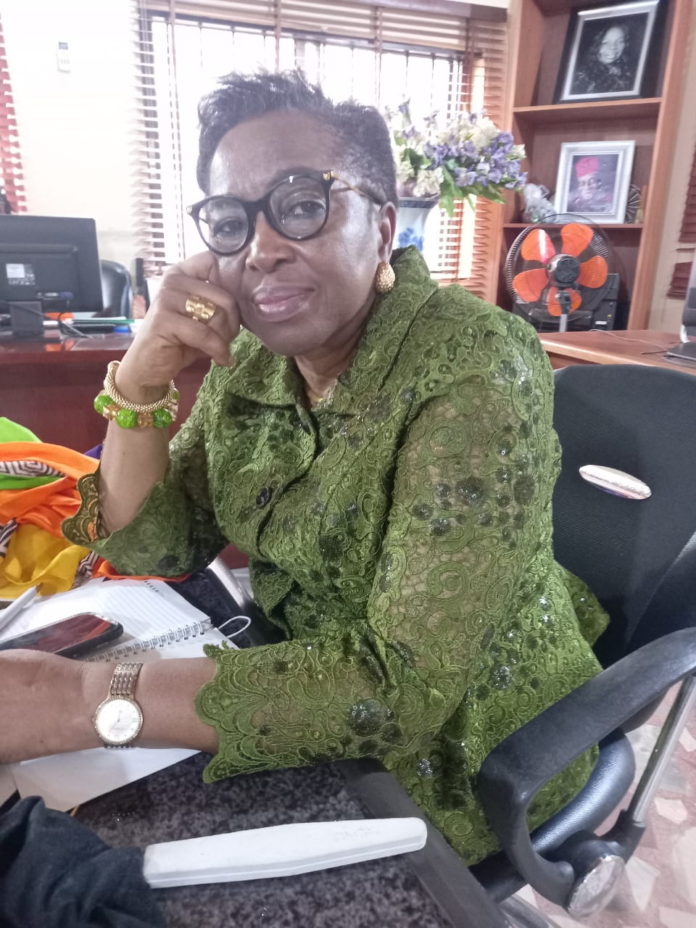By Chinwe Ezenwa
Good morning distinguished ladies and gentlemen!
I would like to start by saying thank you to WiLAT for inviting me to deliver the keynote on women entrepreneurs in a dynamic environment.
This room embodies the women who make things happen in logistics and transport. I know because I am one of you. These quotes are germane to the issues at stake in this keynote address. Jim Lovell says “There are people who make things happen, there are people who watch things happen, and there are people who wonder what happened”.
Again, Vince Lombardi says
“The price of success is hard work, dedication to the job at hand, and the determination that whether we win or lose, we have applied the best of ourselves to the task at hand.”
I am an unrepentant entrepreneur. I started Le Look in 1985 while working as a civil servant earning 500 naira. The name Le Look was borne because one of my brothers cannot talk but can look. My clothes, hair, nails, do not define me. What defines me is my hard work.
As the chief executive officer (CEO) of Ocean Serve and Logistics and Chairman and CEO of Le Look Nigeria Limited, I am also contemplating how to operate in a dynamic environment.
How do you get materials from the country of origin to the production line? That is the basic operational challenge but what about in a dynamic environment? We must first figure out what are the dynamics. What are the headwinds?
These include dueling exchange rates, Central Bank of Nigeria (CBN) rate versus street rate. Harmonization of exchange rate complicates things. Entrepreneurs no longer have privileged access to foreign exchange and are competing for forex with vacationers and so many others that are not directly contributing to Nigeria’s Gross Domestic Product (GDP) as we are.
Multi-dimensional poverty: Some of us are increasingly dealing with a client base that is facing energy poverty, income poverty and infrastructure poverty.
Finances: Access to funding is key in a dynamic environment. Where are the single digit interest rates? An ever long list of collateral requirements and other red tape processes have made it so difficult for us women entrepreneurs to gain access to the capital they need to grow and scale up businesses. Credit facilities are not available to most women. There are also cultural and religious encumbrances. For instance, if you own property jointly with your husband, will he easily consent to using it as collateral?
Business is war. There are enemies on all fronts. How do you win, you ask? You can win by being persistent, dogged, focused, disciplined, strategic and positive and by not entertaining failure. Do not let anything stop you from achieving your goal no matter the challenges confronting you. For example, the removal of fuel subsidy has a huge impact on businesses. In fact, it is one campaign promise that was surprisingly kept! What does an entrepreneur need to do in the face of these limitations? How is this impacting on logistics, you may ask? Well, let us look at sales. Most sales transactions in Nigeria are done in person and such transactions are being impacted by fuel costs. As an entrepreneur, what do you do? Leverage on technology and establish or reinforce your digital sales channels such as online marketing and telemarketing. You may also consider more virtual meetings instead of physical meetings or conferences. Technology is going to be even more key to women entrepreneurs surviving a dynamic environment.
Staffing: How do you get, maintain and sustain employees for your business? What are the incentives or motivations? Is it free lunch, medical benefits or remote work? You cannot win alone in business. To scale and sustain, you need human capacity and people must be trained. Now more than ever, training staff is important. If you do not train them, do not blame them. To each one, teach one. Bring the culture of training to work. Provide opportunities for on the job training.
Employee Engagement: The young generation in the workforce has high expectations of their employers including women entrepreneurs. We are expected to provide more than work and paychecks. These include happy hours, retreats, sports, work life balance, volunteer hours, paid leave, and wellness.
Inflation: We all know that 40% of most business costs are related to logistics. How do you move things from point A to point B? How do you deliver goods cheaper and faster to your customers who are looking at logistics as an operational cost to be shortened?
Customers: There is no doubt that the purchasing power of an average Nigerian is under siege. Inflation is threatening the dwindling middle class. So much so that people have become very price sensitive. Cost consciousness is on the front burner and spurring lifestyle changes. Our customers are prioritizing their spending. Therefore, there is need for serious strategic thinking and planning.
Being excerpts of a keynote paper presented by the Chief Executive Officer (CEO), Le Look Nigeria Limited, Chief (Mrs) Chinwe F. O. Ezenwa at the 11th Women in Logistics and Transport (WILAT) Day Conference 2023 which took place at Oriental Hotel, Victoria Island, Lagos…recently.











